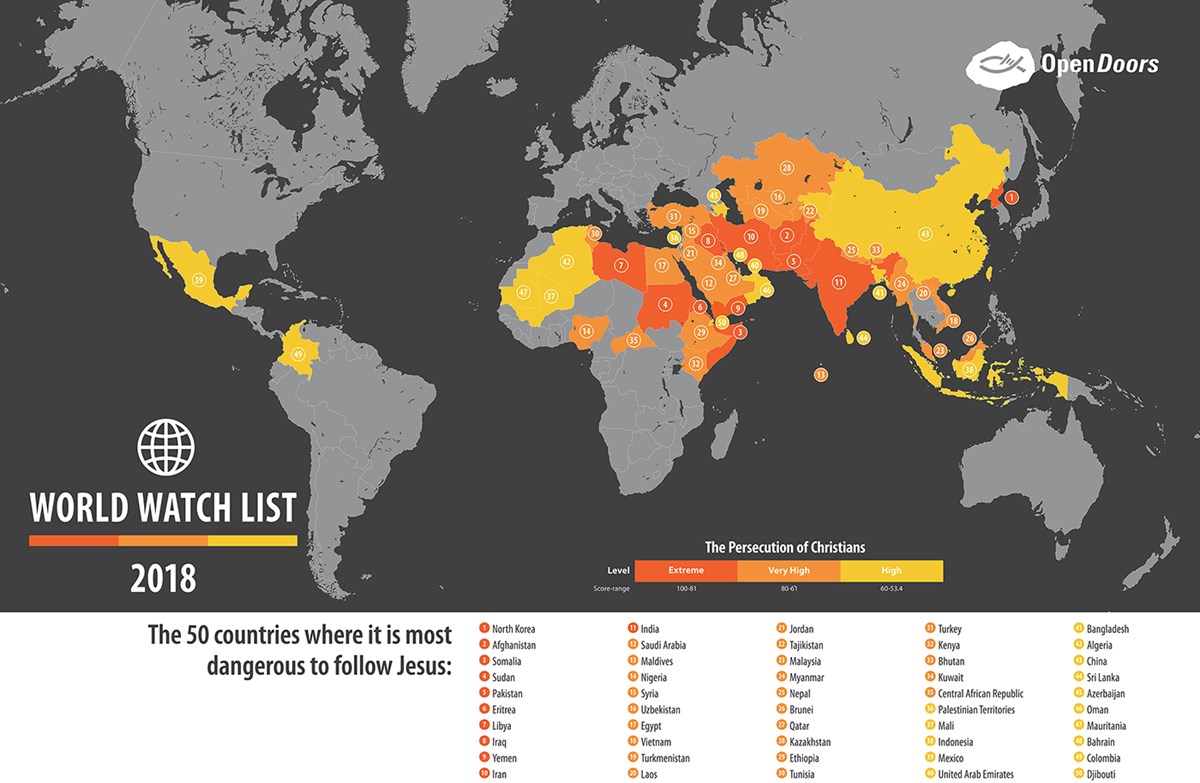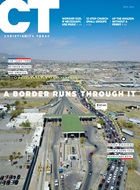In most Sunday schools, the question is an academic exercise.
“How many of you are willing to die for Christ?”
asked the teacher on Easter morning. Every one of the children dutifully raised their hands.
A few minutes later, the Sri Lankan class descended to
Zion Church’s main service, passing through an outside courtyard where a
stranger was speaking with church leaders. He had discovered there was
no Easter morning Mass at the nearby Catholic church in Batticaloa, and
was wondering when the service would begin here. He asked about the
healing service.
Observers
report he was sweating profusely. A pastor invited him to take off his backpack. Then, an explosion—many inside
thought it was the generator.
Half the children died on the spot.
“All the children had responded [to their teacher’s
question] by putting their hands up, and signaled their fresh dedication
to Jesus by lighting a symbolic candle,” recounts a seminary leader
[full testimony in sidebar below]. “For so many of those children, it
would be their final act of worship.”
In total, at least 26 worshipers—including 16
children—were killed and 100 injured at Zion, a charismatic congregation
in the Fellowship of Free Churches in Sri Lanka. Two Catholic churches
in and near Colombo on the island nation’s opposite coast were
also attacked by suicide bombers that morning, along with three hotels. The death toll currently stands at 253,
revised down from 359.
But this is not the only Christian tragedy.
Sri Lankan authorities have now arrested 76 local Muslim
extremists and one Syrian, placing the blame on the National Thowheeth
Jama’ath (NTJ) movement. ISIS has
claimed responsibility, calling it revenge for the
massacre at a New Zealand mosque last month.
In response, gangs of young Christian men are now
marauding
Muslim neighborhoods. People have been assaulted. Shops have been
destroyed. Hundreds of Pakistani refugees—mostly Ahmadis, a persecuted
minority themselves—have
fled the area around St. Sebastian’s, the Catholic church in Negombo where more than 100 worshipers perished.
“How we process this new reality and respond will
determine the character and the witness of the Church of Jesus Christ in
Sri Lanka,” Ivor Poobalan, principal of evangelical Colombo Theological
Seminary, told CT.
“We are hurt. We are angry also,”
stated
Zion’s senior pastor, Roshan Mahesen. “But still—as the senior
pastor..., the whole congregation, and every family affected—we say to
the suicide bomber, and also to the group that sent the suicide bomber,
‘We love you and we forgive you. No matter what you have done to us, we
love you, because we believe in the Lord Jesus Christ.
“Jesus Christ on the cross, he said, ‘Father forgive
them, for they do not know what they are doing,’” said Mahesen. “We
also, who follow the footsteps of Jesus Christ, we say, ‘For the Lord,
forgive these people.’”
Sri Lanka is an odd place for Muslim-Christian tension,
which was virtually unknown before the Easter bombings. An island
southeast of India, the population is 70 percent Buddhist and 12 percent
Hindu. Muslims constitute roughly 10 percent, and Christians 8
percent—predominantly Catholic but with a sizable Protestant majority.
Islam came in the eighth century, spread peacefully by
Muslim traders. Christianity came in 1505 with the Portuguese, furthered
by later colonial empires. Both religions have increasingly suffered at
the hands of nationalists within local Buddhist and Hindu communities,
striking at Sri Lanka’s multi-religious heritage.
The Easter Sunday massacre follows on the heels of the
island’s 1983-2009 civil war, when an ethnic Tamil militia pushed for
independence from the state and the Sinhalese majority. Christians
fought on both sides, and up to 100,000 people were killed.
The Sri Lankan constitution guarantees religious freedom, but
gives Buddhism the “foremost place.” The Supreme Court
ruled last August that religious propagation is not protected
Open Doors
ranks Sri Lanka No. 46 on its World Watch List of the 50 countries where it’s hardest to be a Christian.
Last year, the National Christian Evangelical Alliance of Sri Lanka
reported
86 violations of religious freedom against Christians, and this year
tallied 26 leading up to the Easter attacks. Nationwide, a church
service had faced disruption each of the previous 11 Sundays.
Most Sri Lankan Buddhists are respectful of their
Christian neighbors, said Poobalan, though generally ignorant of their
religion. But significant numbers of conversions have irritated some,
while others have been affected by propaganda that labels Christianity a
“foreign” religion and a proxy for Western interests.
There may be a coming shift.
“The horrific acts have helped Buddhists see how vulnerable Christians really are, and to empathize with us,” he said.
“This may lead to an improvement of attitudes and a
deeper understanding of the non-violent and service-oriented nature of
Christians.”
Unfortunately, there is a growing tension between
Muslims and Catholics, said Heshan de Silva, chairman of the National
Christian Council of Sri Lanka. But there is also an ecumenical
outpouring.
The local Muslim Council
lamented
“extremist and violent elements, who wish to create divides between
religious and ethnic groups.” Many Muslims have joined Christians in
funerals and protests, de Silva said. Buddhist monks have issued
statements in support. And the coming weekend will see a joint
Catholic-Protestant prayer vigil in the public square.
“Please pray for national unity,” de Silva, also
president of the Sri Lanka Baptist Union, told CT. “Church premises
should be a ground for healing.”
But now they may adopt a fortress mentality.
“Churches by their very nature are open places that
invite the stranger to come in,” said Poobalan, citing a growing sense
of Christian fear. “That the stranger might have a sinister motive poses
all sorts of challenges.”
Lal Senanayake, president of Lanka Bible College and
Seminary, urged churches to stay calm and forgive, yet to also be
vigilant. They should develop plans to check out visitors, assign
parking IDs, and monitor CCTV video feeds of the premises. Security is
paramount.
He stressed that Muslims in Sri Lanka are friendly, and pillars of the business community. But he told CT he is not optimistic.
“Certainly there will be antagonism against Muslims by
all other communities [Christians included], and people might start to
look at them suspiciously,” said Senanayake. “The situation might get
worse.”
He also warned that the Sri Lankan church faces a
challenge to not sacrifice truth in favor of harmony as it enters a
phase of new social understanding.
“The church has been the transforming agent of all
societies in the world,” he said. “We must learn to engage not only in
evangelistic activities, but in holistic mission.”
For some, this includes politics.
“Very serious questions have arisen as to why preventive
action was not taken when information was available,” said Abraham
Sumanthiran, an evangelical member of Sri Lanka’s parliament, addressing
lawmakers.
“Those responsible for this—from the very top—must at the very least resign.”
The MP echoed frustration about the political crisis
gripping
Sri Lanka, as President Maithripala Sirisena feuds with Prime Minister
Ranil Wickremesinghe. The president unlawfully controls the police
force, Sumanthiran stated, and Muslims had previously asked for the
arrest of the NTJ leader.
The prime minister
denied receiving reports of extensive surveillance that intelligence services had performed on the terrorists now arrested.
But the politics of Sumanthiran, former vice president of the island’s Methodist denomination, did not neglect evangelism.
He closed his speech by urging that Muslims not be blamed for the tragedy. But he opened it by defining Easter.
“We believe in Jesus Christ, who came into this world,
suffered as we do and took the worst of evil onto himself and was
crucified unjustly,” he said.
“But he defeated all evil through self-sacrificial love, which is what we celebrate on Easter: Resurrection day.
“We are grieving, but we will not allow hate and revenge to overtake us.”
The Muslim MP that followed him expressed great appreciation.
“I bow to the Christian community … who have proven their magnanimity in practicing the words of the Lord Jesus Christ,”
said Rauf Hakeen, the leader of the major Muslim party in parliament, quoting the biblical verse about turning the other cheek.
“By preaching calm to the bereaved Christian communities
at a time of grief, [and] resisting backlash against the Muslim
community living in absolute fear.”
Hakeen also praised the Catholic Archbishop of Colombo, Malcolm Ranjith, for publicly forgiving the attackers.
But in the moment of grief, Ranjith had also lashed out.
“Only animals can behave like that,” he
said. He urged the government to punish them “mercilessly.”
Surekha Hulugalle, a Sinhalese expat and national leader
of the Foursquare denomination in Great Britain, feared that Ranjith’s
words could instigate a sense of hatred or revenge. He warned against
political use being made of the tragedy, and urged the media to report
responsibly.
The government acted on such fears. It withheld the identity of the attackers as long as possible, and
shut down
social media to prevent the spreading of rumors. Already there have
been accounts that falsely suggest the attack targeted Tamil Christians
rather than Sinhalese, which he and other evangelical leaders rejected.
“Sentiments such as these will only cause more harm to
our nation,” Hulugalle said. “The entire nation is weeping. This is a
national tragedy.”
As it is in England. Its Sri Lankan immigrant community is substantial, and where one of the attackers
came for his education. In Leicester, Zion’s sister church
held a memorial service for their many lost relatives.
Hulugalle was sent to the United Kingdom as a missionary
by his Sri Lankan denomination, presiding now over a mix of
nationalities inclusive of traditional Brits. He hopes a similar unity
will prove evident back in his homeland. (Several UK churches will host a
memorial service on Monday.)
“Tragedy brings us closer, and human love and compassion can rise above our differences,” he said.
“But only Christianity brings every ethnic group together.”
So while Sri Lankan Christian leaders preach calm as
their youth are tempted toward radicalization, the hope of
transformation hangs in the balance.
Poobalan is a witness, and a participant. The surviving
Sunday school teacher in the opening anecdote is one of his almost 1,000
seminary students; a martyred pastor was another one.
“The national situation has dramatically changed,” he
said, noting how this terrorist act is so out of proportion to even the
rising sense of religious tension in Sri Lanka, yet becoming a
mega-trend across southeast Asia.
“These unprecedented attacks have re-emphasized that our
discipleship must be lived out in a broken world that lives in rank
hostility towards its creator and savior.”

















